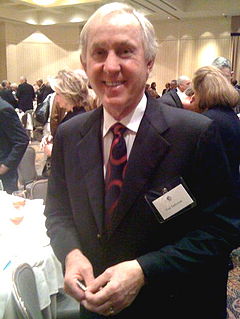A Quote by Benjamin Graham
Both individual skill (art) and chance are important factors in determining success or failure.
Quote Topics
Related Quotes
Social evolution is a resultant of the interaction of two wholly distinct factors: the individual ... bearing all the power of initiative and origination in his hands; and, second, the social environment with its power of adopting or rejecting both him and his gifts. Both factors are essential to change. The community stagnates without the impulse of the individual. The impulse dies away without the sympathy of the community.
Kipling said that Success and Failure are both imposters, and we should all listen to Kipling, if only because none of us are likely to know anybody else named Rudyard. But having been bitten in my life by the jaws of both victory and defeat, I must rush to add that success is to failure as butter pecan ice cream is to death.
If optimism is important, it's because many outcomes are determined by how much of it we bring to the task. It is an important ingredient of success. This flies in the face of the elite view that talent is the primary requirement of a good life, but in many cases the difference between success and failure is determined by nothing more than our sense of what is possible and the energy we can muster to convince others of our due. We might be doomed not by a lack of skill, but by an absence of hope!
I to the We means that both the individual's effort and the power of the network matter, and they work in tandem. Someone with no skill won't get very far, no matter how strong the network. Similarly, someone with lots of skill but a weak network won't realize his or her fullest potential. So, you need both.
If Steinitz continually took pains to discover combinations, the success or failure of his diligent search could not be explained by him as due to chance. Hence, he concluded that some characteristic, a quality of the given position, must exist that would indicate the success or the failure of the search before it was actually undertaken.





































